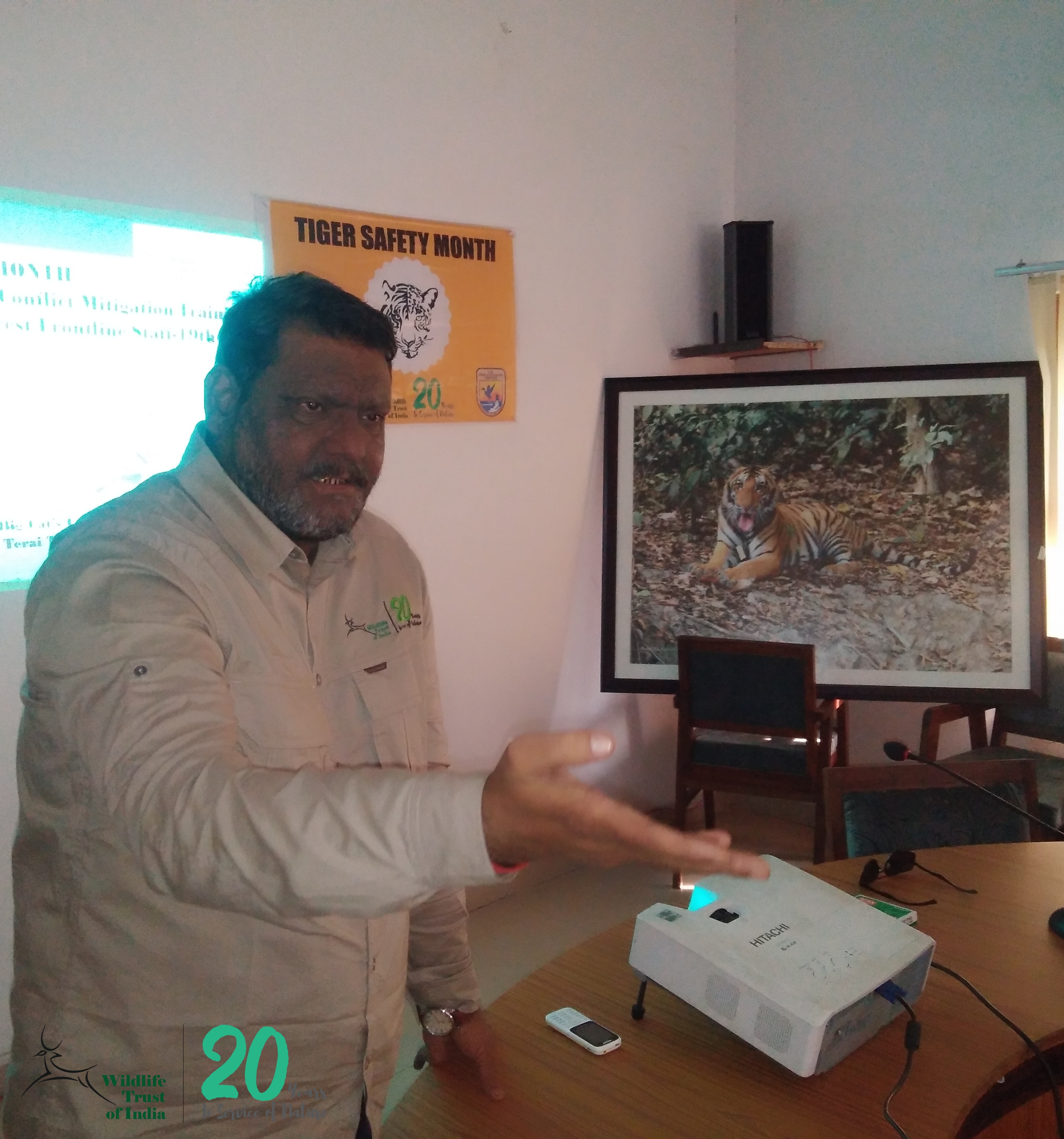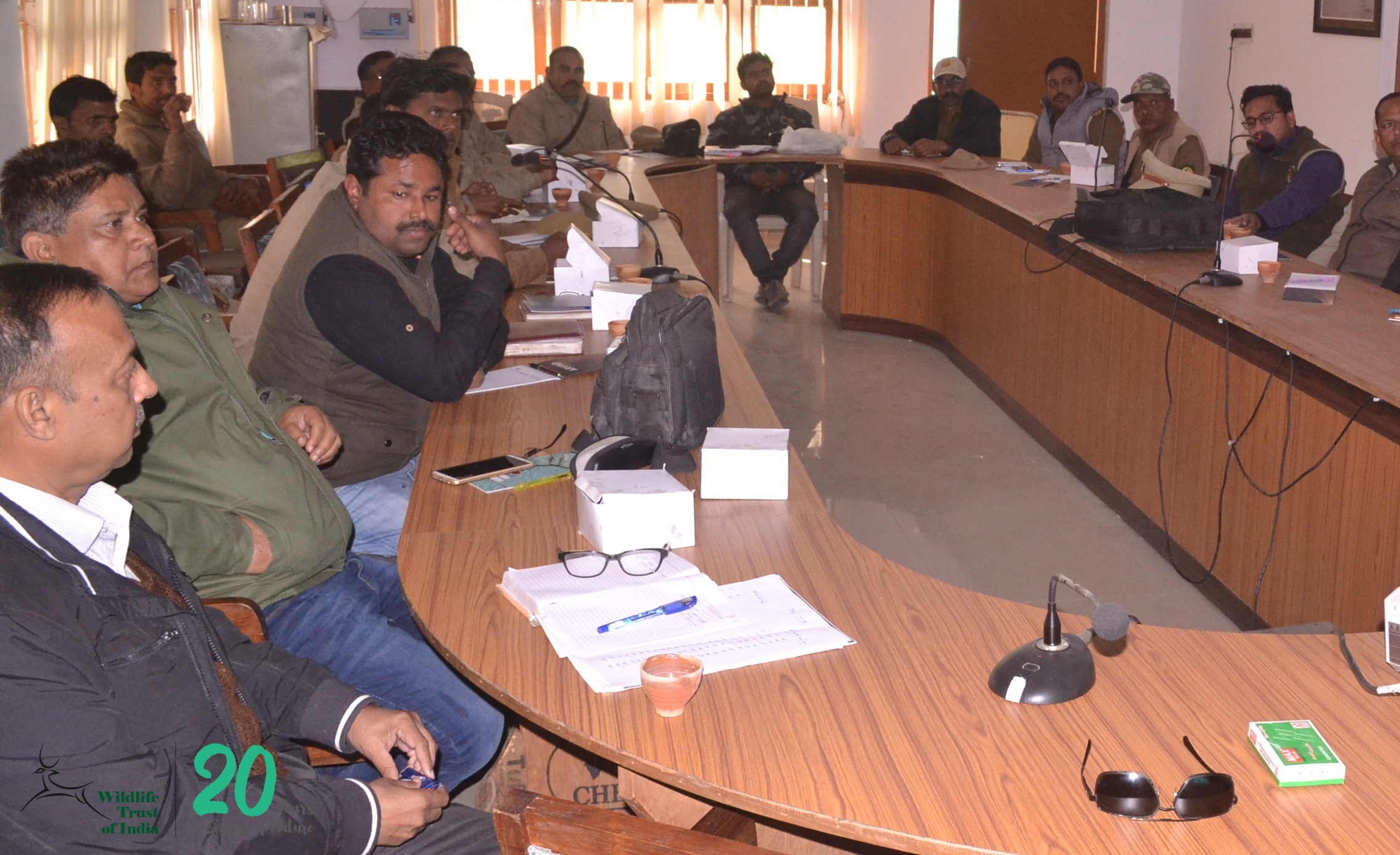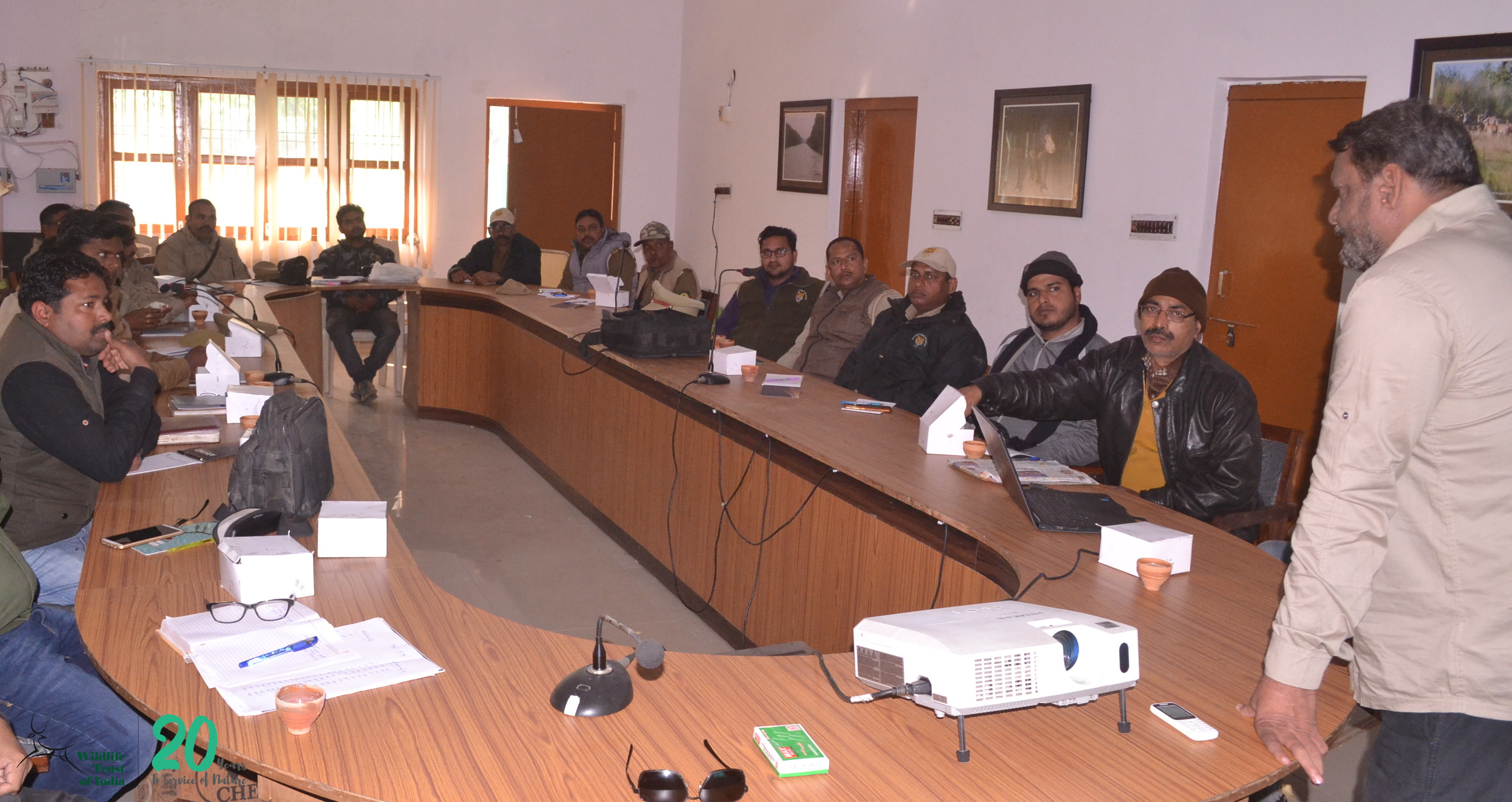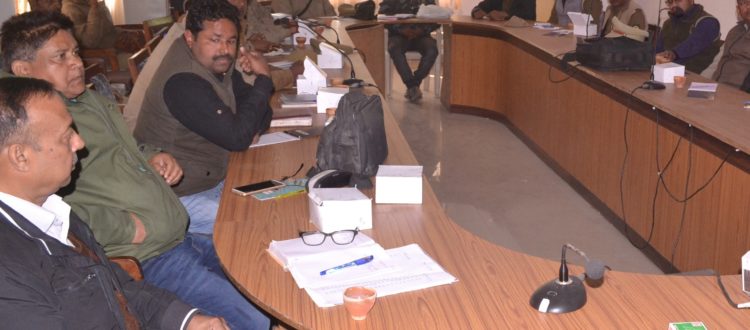Engagement with Forest Department- Training Workshop on Human-Tiger Conflict Mitigation in Pilibhit Tiger Reserve
Pilibhit Tiger Reserve, Uttar Pradesh, December 19, 2018 : Wildlife Trust of India (WTI) in collaboration with Uttar Pradesh Forest Department Conducted a Training Workshop on Human-Tiger Conflict Mitigation in Pilibhit Tiger Reserve. In response to the intensifying levels of conflict between humans and tigers in Terai landscape, Uttar Pradesh, UP Forest Department decided to celebrate ‘Tiger Safety Month’ from December 1st to December 31st 2018. On these lines, the department developed a Conservation Action Plan with support from Wildlife Trust of India. WTI provided hands-on training on various aspects of human big-cat conflicts and appropriate mitigation strategies to select frontline staff from three ranges of Pilibhit Tiger Reserve (PTR) – Barahi, Haripur and Dioriya.

The workshop consisted of 25 frontline forest staff with Mr Praveen Khare, Warden, Puranpur, PTR and media persons along with Mr Prem Chandra Pandey, Head of Terai Tiger Project and Mr Francis Ishmael, Biologist from WTI.

Owing to the successful execution of the training program, Deputy Director, PTR, Mr Adarsh Kumar said, “Most of the man-tiger encounters can be avoided if people are aware of biology and behaviour of these animals. This aspect is important not only for villagers living in forest fringes but also to forest staff who deal with this daily. Keeping this in mind, during the ongoing Tiger Safety Month, WTI team assisted in the capacity building of the frontline forest staff. In addition, WTI is educating villagers about precautionary measures that should be taken when they encounter a tiger or leopard outside forest bounds. This will not only reduce the chances of man-animal conflict incidences but also contribute to better monitoring and protection of forest and wild animals, with the help of local people who are an integral part of landscape-level management strategy”.

The training included biological and sociological aspects related to the human-tiger conflict. And covered topics such as causes of conflict, mitigation tactics, monitoring of wildlife signs, documentation and use of biological equipment. Sociological elements such as community engagement, the role of media and formula for better administration were also elaborated. The training also included a pre-and post-training assessment, which will help them assess the scope and effectiveness of such workshops in the future. By conducting such workshops, WTI aims to build the capacity of forest staff to handle conflict situations autonomously in future.









